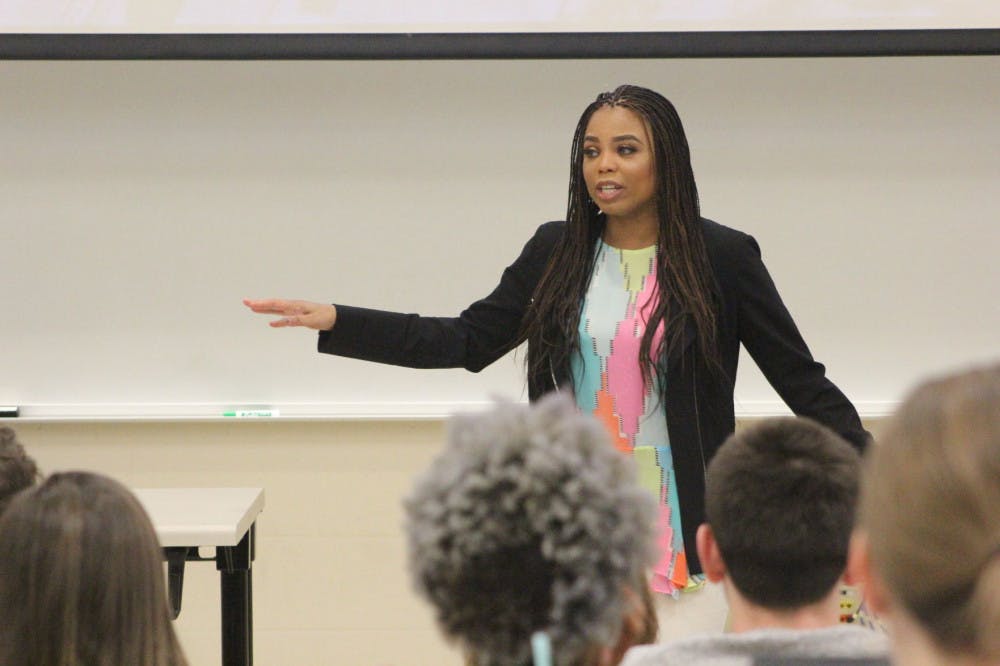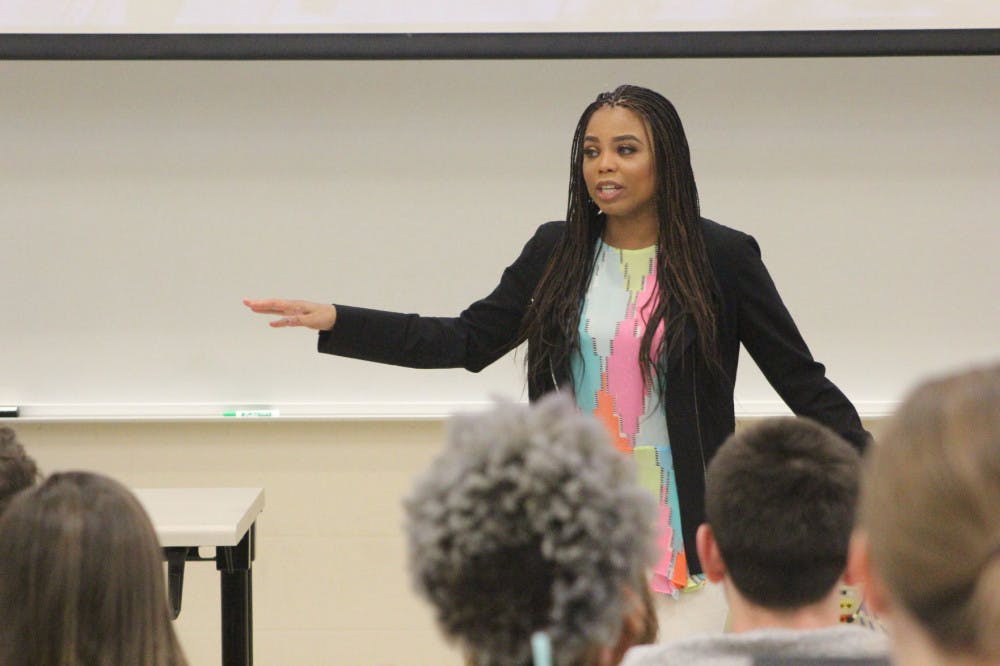For some people, finding our true purpose in life sometimes requires trudging down a path of roadblocks and might take a vast range of experiences.Â
For sports journalust Jemele Hill, it might take a tweet from the President of the United States.Â
The former ESPN sports reporter called President Trump a “white supremacist†on Twitter on September 2017. The remark came in the aftermath of the white supremacist Unite the Right rally in Charlottesville, Virginia.
She sent another tweet weeks later suggesting that fans should boycott Dallas Cowboys’ advertisers after owner Jerry Jones threatened to bench players who chose to kneel during the national anthem. As a result, she was handed a two-week suspension from ESPN.
One early morning during the suspension, her cell phone received what seemed like never-ending text messages in reference to one of Trump’s tweet, swhich blamed Hill for ESPN’s ‘tanking’ ratings.
Hill was the talk of various television news networks. Despite the suspension, she said it changed her for the better.
“I wasn’t being silenced,†Hill said. “I was being awakened.â€
The Detroit-based journalist noted her desire to return to writing. She spent several months working for The Undefeated, a platform designed to discuss intersections of race, gender, politics and sports. She narrated the LeBron James documentary series “Shut Up and Dribble,†which highlights the role of professional athletes in the political environment.
“Sports and society are happening at the same time,†Hill said.
Hill had been working for ESPN since 2006, but she and the network decided to part ways in September 2018. Hill now works for The Atlantic, a magazine centered on culture and politics, among many other topics. Hill said she is proud that she took control over her own career path.
She has written articles about the Obamas, Kamala Harris and former NFL quarterback and social activist Colin Kaepernick, among other people. Hill said her desire to share her views on today’s controversial political climate and challenge herself as a writer and reporter served as the fuel for the fire in her work with the organization.
“I’m not an activist, even though I am often characterized as such,†Hill said. “I’m just a journalist who is committed to finding ways to bring awareness, attention and disruption to the issues that I think are central to us.â€
Hill is also starting a production company called Lodge Freeway Media and her podcast “Unbothered†will debut on Spotify on April 8.Â
The award-winning writer emphasized her belief that journalists must be in this field for purposes larger than themselves.
Hill described journalists as “disruptors,†meaning that they must be willing to shine light on uncomfortable topics that need to be addressed, regardless of other people’s reactions. Hill reflected on the media’s necessity of remaining committed to their work.
“The public doesn’t trust us,†Hill said. “We have an administration, and a president in particular, that has categorized us as enemies of the state.â€
Hill, being a black female journalist, said she thinks there needs to be a change in the field. She also said journalism is a field that is consumed by predominantly white men and used the term ‘elitisim’ to describe the current climate.
“People of color are missing from newsrooms,†Hill said. “We need journalists to bring balance back to the force.â€
Hill said her inspirations come from older people who reflected on their past experiences, such as Muhammad Ali taking his stand and refusing to go to Vietnam and serve in the war.
She said she has a desire to leave an impact on the journalism field and encourages aspiring journalists to speak the truth and work with integrity.Â
When asked about how she navigates being a black journalist, Hill said she has learned to deal with the backlash. Hill shrugged and said, “It is what it is.â€







